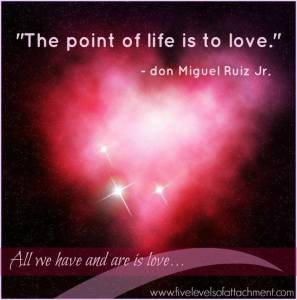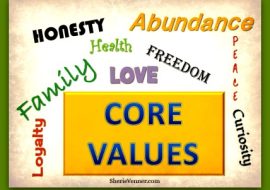
An Essential Quality in a Happy Relationship. Part Three
Respect
It is easy to notice a lack of respect, but defining it isn’t as easy.
To have respect for someone else, you must have respect for yourself.
Definition of Respect
Respect is showing regard for someone’s abilities and worth. It means valuing their feelings and their views, even if you don’t agree. It means accepting them on an equal footing and giving them the same consideration you would expect for yourself.
Respect is treating someone with kindness, understanding and compassion and accepting them for who they are.
Respect begins with oneself.
Respect is learned by experience. It is also defined by culture.
The Importance of Respect in Your Circle
The basis for respect lies in our values. It’s difficult to respect someone’s behavior if it is on the opposite end of the spectrum of what we consider respectful.
Let’s say your dog is well trained in regard to barking and walking. It is important to you not to disturb your neighbors. You feel that this shows respect for their privacy and right to quiet enjoyment of their home.
You realize that the sidewalk is a public place where everyone can safely walk. Therefore, your dog knows to walk calmly and is on a short leash when someone approaches.
Across the street from you lives a person whose dog is always barking and jumping at the fence or the window. When you cross paths on your walk, their leash tangles around your feet.
Maybe that person is from a different culture where those things aren’t important. Everyone is loud and rowdy, and dogs run wild and bark freely.
Since you live relatively close to each other it gets difficult. You may be able to grudgingly give respect for their cultural values, but living so closely will gradually erode your effort at respect.
Respect in Your Relationship
Respect is a vital component of any healthy relationship. It is part of the five essential qualities for a good relationship. https://encinitas-counseling.com/part-one-one-of-the-essential-qualities-in-a-happy-relationship/
As we discussed in previous posts, the foundation for a healthy respectful relationship is understanding your and your partner’s values. https://encinitas-counseling.com/an-essential-quality-in-happy-relationships/
You can love someone yet struggle to have respect. If one of your values is living a healthy lifestyle, yet your partner can’t seem to stop eating cookies and chips while their blood sugar keeps going up.
Here are some helpful questions about your beliefs about respect. It is important that you discuss these with your partner and share your definitions of what respect means to either of you.
- What are your boundaries? Your partner’s boundaries?
- What behavior is a deal breaker?
- What are your definitions of respect? Does your partner share those definitions?
- What are examples of respect and disrespect?
- Do you feel comfortable sharing your thoughts and feelings with your partner?
- Can you trust your partner? What does trust looks like in your daily life?
- What happens if one of you is disrespectful? How will you handle this?
Each relationship is unique and has different issues. Determine what yours are.
Is your partner constantly looking at his phone when he’s home? Have you discussed that this feels disrespectful to you, particularly when you are trying to discuss some important concerns? Can you talk about this and find a happy medium?
Is your wife always talking and never really listening to you? Some people feel compelled to talk a lot. They’re always talking over other people. Always working on the response, rather than listening to what is being said by their partner.
This kind of compulsion requires serious effort on your partner’s side. This could be something that would benefit from counseling.
How to Build Respect in Your Relationship
Once you lose respect, like trust, it is difficult to rebuild.
You can rebuild trust if disrespectful behavior is not abusive and recurring.
Being in a relationship is sometimes difficult, even for the happiest, healthiest couples. You’re bound to disagree, make poor decisions, experience mood changes, and cross boundaries.
Here are some helpful ways you can build respect:
- Open and honest communication. It is better to communicate honestly than to worry about hurting your partner’s feelings, because if you are not honest about your feelings and beliefs, it will eventually come out and their feelings will be hurt more deeply than if you had expressed your thoughts early on.
- Support each other’s interests. You don’t have to share the same interests. Everyone has different interests, passions, and hobbies and it’s important to support what your partner values, if it isn’t damaging to the relationship. Maybe your partner loves to travel, but you don’t. Don’t deter her from going with friends. You are supporting her passion and by acknowledging and accepting this, it will build respect in your relationship.
- Take responsibility for your actions. Don’t blame outside circumstances or another person. We’ve all known people who never admit their part in the issue. It brings to mind a child who wants to avoid getting in trouble. That is not a behavior that inspires respect.
The most essential quality for a healthy foundation in a relationship is self-awareness and it is critical that you notice how your behavior is affecting your relationship. How much are you bringing to the relationship and how is your stress affecting your ability to show up for your partner?
See more https://medium.com/@neuckh/couples-in-happy-relationships-do-these-five-simple-things-0ae7b7cc6c27
https://www.verywellmind.com/respect-is-vital-to-building-a-healthy-relationship-5206110






